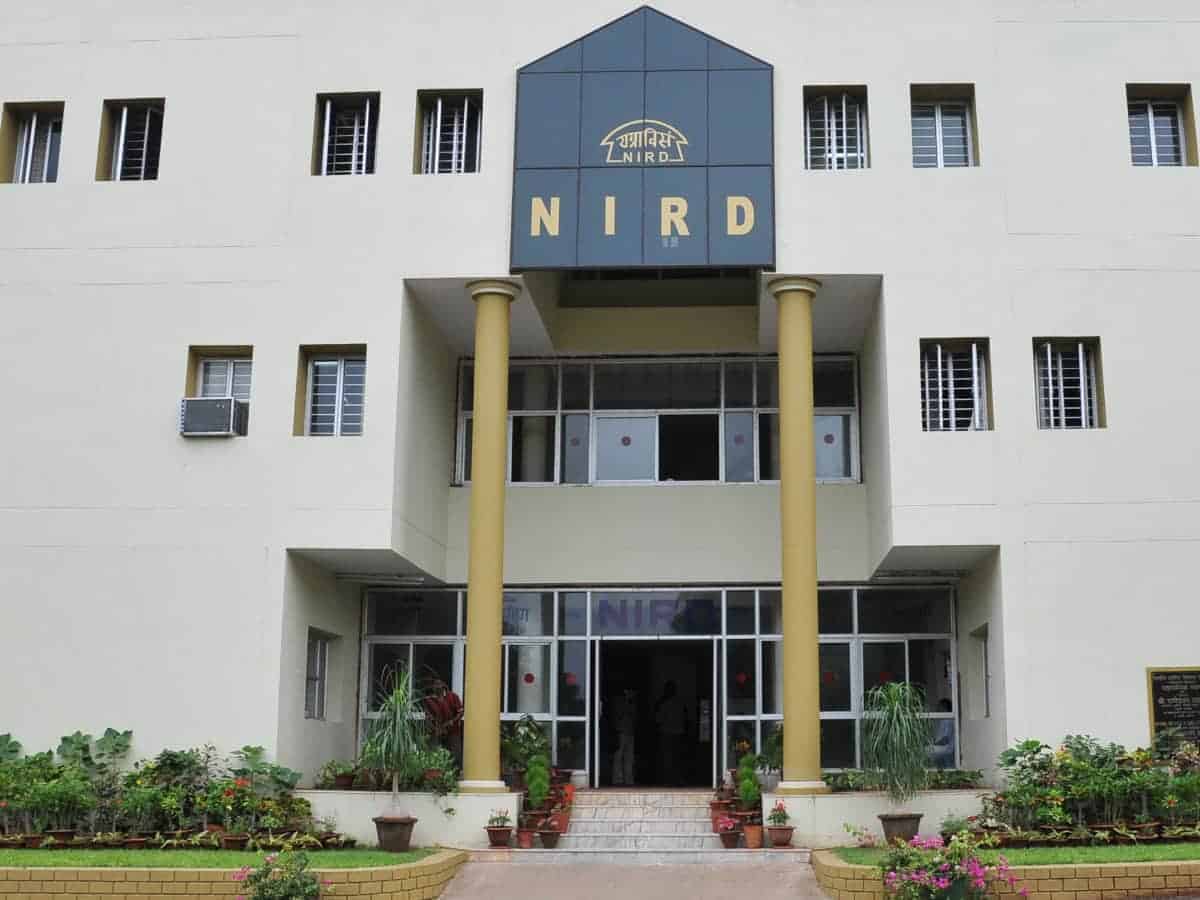Hyderabad: National Institute of Rural Development and Panchayati Raj (NIRDPR) has conducted a study to analyse the working conditions and socio-economic status of the migrant population in the states of Tamil Nadu and Uttar Pradesh. The study highlights the dynamics of people movement, their contribution to the local as well as to national development. The study has recently been published in the National Journal of Labour and Industrial Law.
One of the major issues the study found was the prevalence of the Child Labour in stone quarries. In addition, the study also found various health hazards that these people face due to poor living and working conditions. The migrant labourers become prone to various respiratory diseases such as tuberculosis, bronchitis and asthma. Women and children suffer from malaria and anaemia due to lack of nutritious food.
Speaking on the important findings of the study, Dr Chinnadurai, co-author of the paper and Associate Professor, Centre for Decentralised Planning, NIRDPR, said, “The nature of high mobility in changing of worksites and status of non-local labours were hardly united to fight against or demand for their rights. None of the labour organisation was registered in any of the work sites. But there are Non-governmental organisation working for welfare and legal support for the Inter-state quarry workers. Awareness creation of the rights and provisions of various laws pertaining to labour under the Constitution of India, making adequate initiatives to implement the protective and welfare measures for the betterment of the working conditions are the need of the hour.”
Poor and unskilled people from Odisha, Andhra Pradesh and Karnataka move to Tamil Nadu while Uttar Pradesh tends to attract poor migrants from Bihar, Jharkhand and Uttarakhand. Seasonal migrant labourers constitute an important component of the workforce in granite quarries in Tamil Nadu and are mostly employed to do bottom-end tasks that are highly risky that the local labourers may not be willing to undertake them.
Speaking about the study, Dr R. Aruna Jayamani, co-author of the paper and Assistant Professor, Centre for Planning Monitoring and Evaluation, NIRDPR, said, “Majority of the workers feel they are disintegrated from their society and they are distant from their relatives and feeling insecurity due to lack of people to share their feelings. It is essential to create educational access to their children either in the workplaces or arrangement of boarding and accommodation in the form of priority in admission to the boarding schools nearer to the place of work.”
Some of the major highlights of the study:
- Most of the workers engaged in stone quarry work are from backward castes and Scheduled Castes. They account for 77.3% in Tamil Nadu
- Long term binding contracts through loans and wage advances is a widely prevalent labour hiring practice in the granite quarrying industry in both Tamil Nadu and Uttar Pradesh
- Labour conditions are slightly better in quarries operated by State-owned companies
- Migrant labour makes major contributions to the Indian economy, with the construction sector being one of the largest employers in India with approx. 40 million migrants
Migrants are often faced with a lot of difficulties in getting the necessary government services including access to good education, basic amenities and more. When it comes to women, the condition is even more difficult. The per-day wage earnings of women workers in waste stone processing activity varies between Rs. 150 and 200 for eight to nine hours of work which is below the legal minimum wage rates prescribed for unskilled workers in granite quarries.
During the field visits made to the quarries in Tamil Nadu and Uttar Pradesh, NIRDPR found that most of the quarries were not following any safety guidelines. Workers were observed working without any Personal Protective Equipment (PPE). Many workers claimed that they are not provided with any safety equipment except for during labour inspections. Children were seen working with their bare hands with hammers and sieves.
About NIRDPR
The National Institute of Rural Development and Panchayati Raj (NIRDPR), an autonomous organisation under the Union Ministry of Rural Development, is a premier National Centre of Excellence. Recognized internationally as one of the United Nations Economic and Social Commission for Asia and the Pacific (ESCAP), it builds capacities of rural development functionaries, elected representatives of Panchayati Raj Institutions (PRIs), bankers, NGOs and other stakeholders through inter-related activities of training, research and consultancy. NIRDPR also oversees the State Institutes of Rural Development (SIRDs).
The SIRDs focus on the qualitative development in the ongoing rural development schemes and sensitize the elected representatives of Panchayati Raj Institutions (PRIs) to be proactive through capacity building activities at the State level. NIRDPR also conducts training programmes for various government functionaries at these SIRDs on cross-cutting issues within rural development.
The Institute is located in the historic city of Hyderabad in Telangana State. NIRDPR has completed 61 years. In addition to the main campus at Hyderabad, this Institute has a North-Eastern Regional Centre at Guwahati, Assam, to meet the NE-regional needs.

